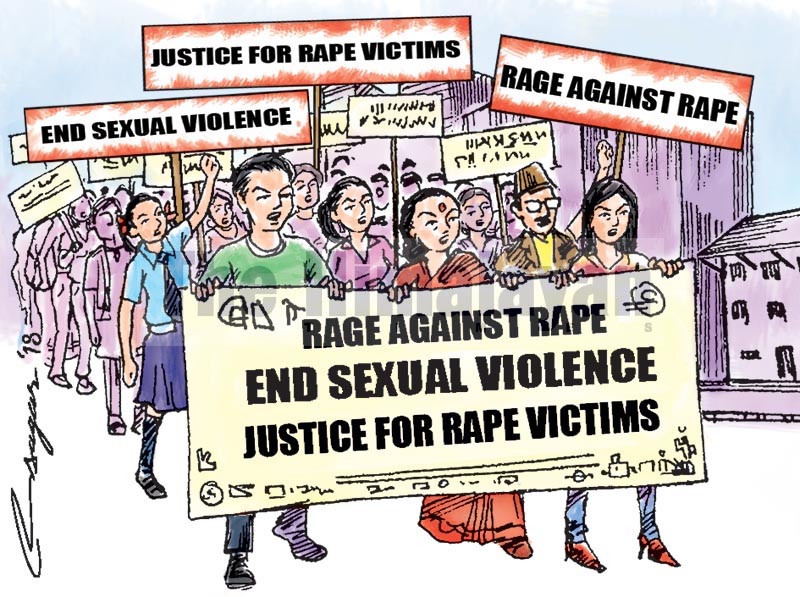New penal code fails minor rape victims: Lawyers
Kathmandu, September 13
Existing provision of the new penal code regarding statute of limitation for filing first information report in rape cases, particularly in cases where victims are minor, is flawed and needs to be amended, say lawyers.
Section 229 of the penal code stipulates that an FIR should be filed within a year from the date a crime of rape is committed against a victim.
Advocate Bishnu Prasad Pokharel and Raju Chapagai said the current provision of one year statute limitation encouraged impunity as minor victims were unable to file FIR within a year. Pokharel said there were cases where police had refused to file minor victims’ FIRs against their perpetrators as the victims approached the police after the statute of limitation elapsed.
“If a rape is committed against a minor girl, incapacitated or mentally challenged woman, statute of limitation should not be considered. If statute of limitation is considered in the case of minor victims, the time limit of filing complaint should start from the day the juvenile victim becomes an adult,” said Pokharel. As per new law, people are deemed adult after attaining 18 years of age.
Pokharel said the penal code’s provision relating to statute of limitation in rape cases violated children’s right guaranteed in Article 39 (8) and 39 (9) of the constitution. Article 38 (8) stipulated that every child shall have the right to juvenile-friendly justice.
Article 39 (9) stipulated that the child who is helpless, orphan, conflict victim, displaced or vulnerable or disable, shall have the right to special protection and facilities from the state.
Denying minor girls’ right to justice just because they failed to file FIR within one year, violated the spirit of Article 38 and 39 of the constitution, Pokharel argued.
Advocate Chapagai said increasing the statute of limitation in rape cases was necessary
because it was possible that minor victims did not understand the crime committed against them or they could be easily intimidated into silence by their perpetrators.
“Minors are sometimes raped by their own relatives and guardians. Therefore, filing FIR within one year may not be possible for the minor victims,” Chapagai added.
Spokesperson for Office of the Attorney General Sanjeeb Raj Regmi said the court needed to interpret the statute of limitation in the way that benefits juvenile rape victims. “New Children’s Act stipulates that a minor girl who has become victims of violence and sexual harassment should file an FIR within one year from the day she reaches 18 years of age, the age of maturity,” he said.
According to Regmi, section 74 of the Children’s Act had provisions for statute of limitation in cases of violence and sexual harassment against minor girls, but it did not clearly say anything about rape against minor girls. “It is a matter of interpretation by the court to say whether section 74 also applies to rape victims who are minors,” said Regmi.
Advocate Bishnu Prasad Pokharel, however, said the amendment to penal code was necessary to ensure justice to minor girls who were victims of rape.
“Provisions of Children’s Act apply only to sexual harassment and sexual assault cases and not to rape cases. Therefore, penal code needs to be amended to increase the time limit for victims to file FIR against their perpetrators,” Pokharel argued.






